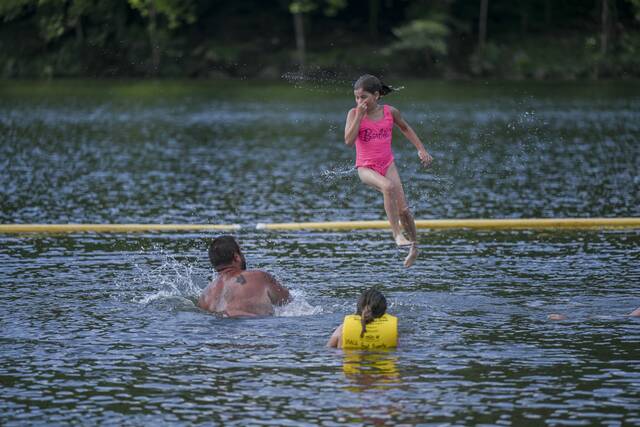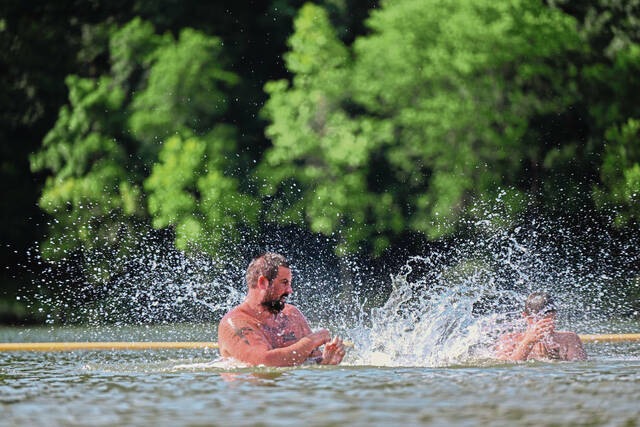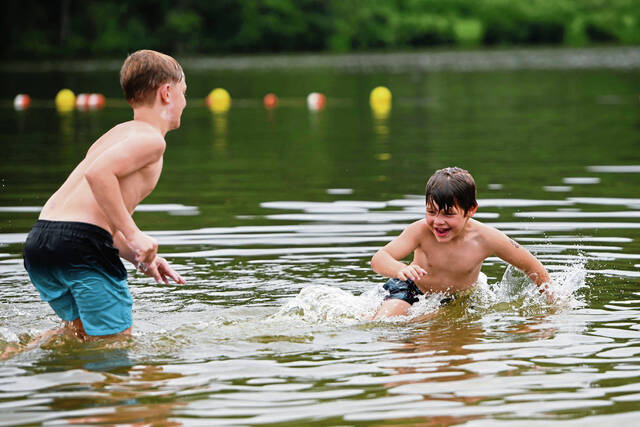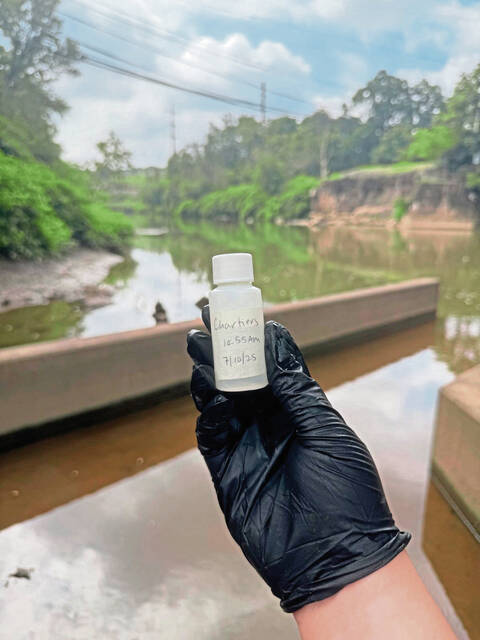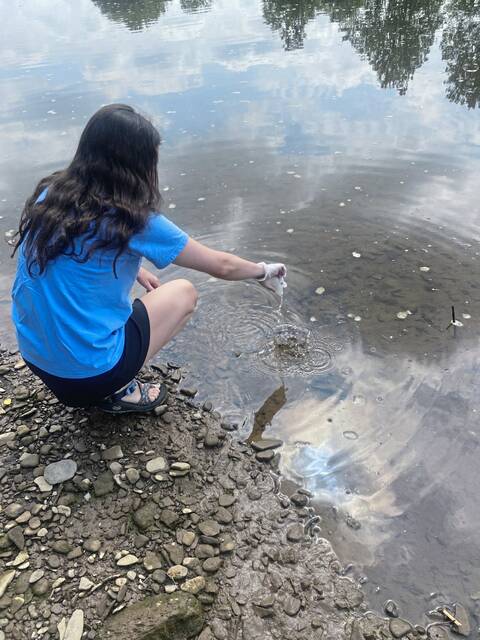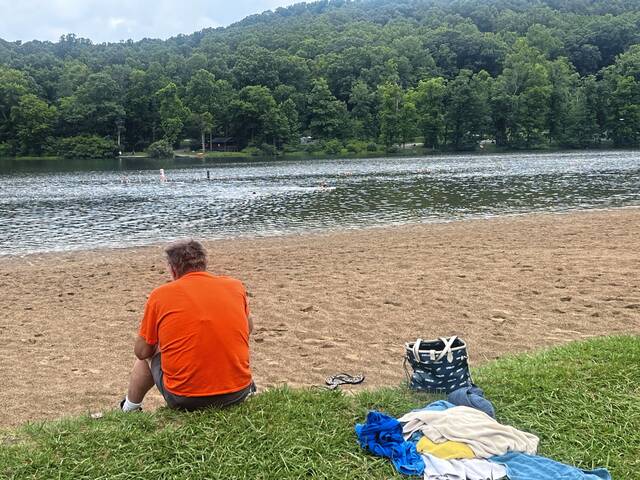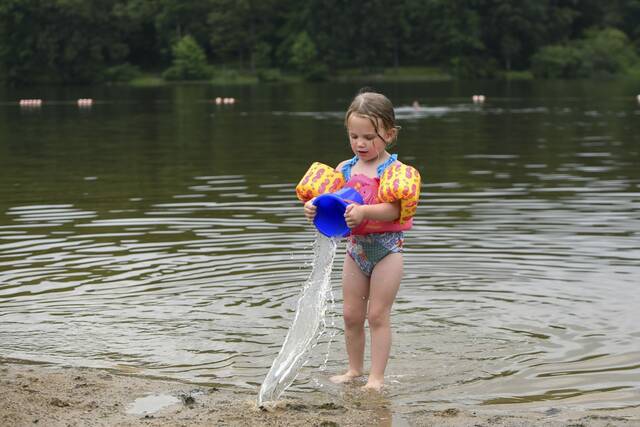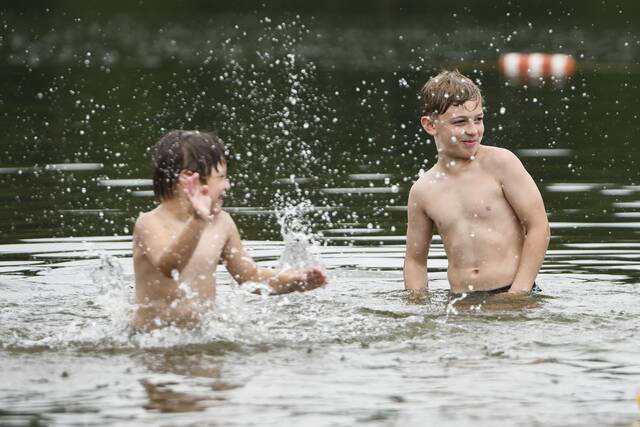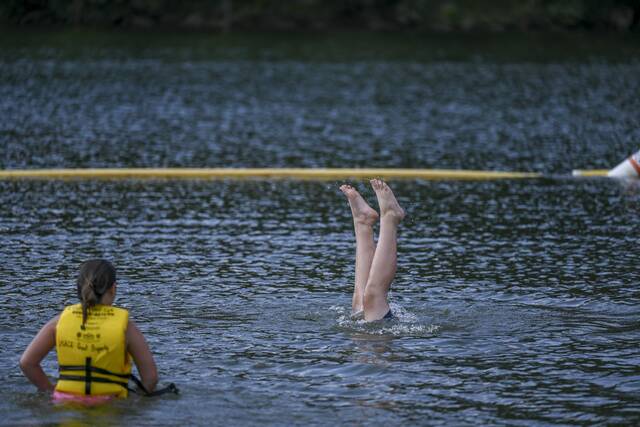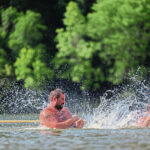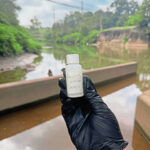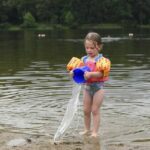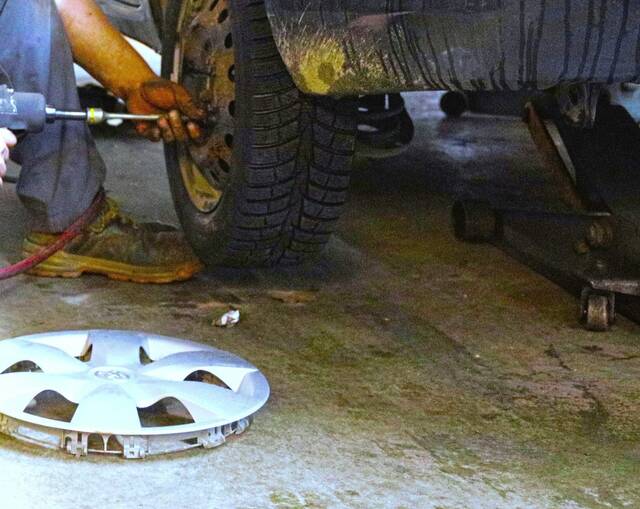When it rains, it pours E. coli.
That’s what water quality testers across Western Pennsylvania might tell you right now.
Every week during the summer months, volunteers and employees monitor the region’s public waterways for E. coli, which can flow into lakes and streams from agricultural and sewer systems overwhelmed by heavy rain.
The state park system has its own weekly monitoring system, while watershed associations check rivers and streams for the infectious bacteria that can prompt everything from stomachaches to sepsis.
Just Thursday officials closed the beach at Raccoon Creek State Park in Beaver County to swimming because of elevated E. coli levels found during a required regular sampling. The water will be re-tested routinely, officials said, with the beach closed for swimming until levels decrease.
While a few of the swimming areas in the region’s state parks are closed, most rivers and streams monitored by watershed associations have tested positive for high levels of E. coli as recently as this week. Even if the bacteria is detected, the rivers and streams are not necessarily closed to public access, though warnings may be posted.
Every Wednesday, volunteers and employees for Mountain Watershed Association visit popular swimming holes in rivers and streams around Southwestern Pennsylvania.
As of Thursday, 10 out of the 15 swimming areas tested by the Mountain Watershed Association, based in Melcroft, Fayette County, showed high levels of E. coli.
Laurel Hill State Park’s swimming area is closed because of high bacteria levels and murky water from recent storms, according to the park’s website. While that park’s beach is closed, most others among the 124 state parks have largely passed weekly tests so far this summer.
“If the beach is closed, it’s in the public’s best interest to stay out of the water and respect that closure,” said Ben Monk, park operations manager at Laurel Hill. “It’s not closed because we are trying to keep people from having fun. It’s closed because it’s not safe.”
E. coli and its impact
Escherichia coli, better known as E. coli, are bacteria found in human and animal intestines, according to the Centers for Disease Control and Prevention.
Children younger than 5, adults 65 and older, people with weakened immune systems and international travelers are at an increased risk for E. coli infection, according to the CDC.
Symptoms of a waterborne illness include an inflamed cut, rash or red bumps, headaches, stomachaches, cramps and vomiting. E. coli also can make people sick with diarrhea, urinary tract infections, pneumonia, sepsis and other illnesses.
Eric Harder, who is the Youghiogheny riverkeeper for Mountain Watershed Association, said the Environmental Protection Agency’s threshold for dangerous water is 235 E. coli colonies per 100 milliliters of water.
At that level, Harder said, 33 out of 1,000 people swimming in the area are likely to get a waterborne illness. Even when the levels are below 235, people can still get sick, Harder said.
Harder said to stay safe from waterborne illnesses, swimmers should stay away from brown or murky water, limit the amount of water ingested and take note of cuts before entering the water.
The results of the weekly tests can be found at the association’s Swimmable Waters website.
“(We) provide this resource so people can make a better conclusion whether they want to go in the water or wait,” Harder said. “There are ways to be more educated and more protected when entering potential bacteria-laden waters. We are just looking to keep the public aware.”
Heavy rainfall this year
The rainfall this year has increased concerns for swimmer safety near Pittsburgh, according to Three Rivers Waterkeeper, another monitoring organization that is active in Allegheny County. Point State Park had an estimate of a 90% pass rate last summer, compared to an estimated 50% pass rate only halfway through this summer season.
“I do think this (E. coli increase) is most likely due to that increased precipitation,” said Koa Reitz, an environmental scientist at Three Rivers Waterkeeper, “because even if we’re not directly sampling on a date when there’s (an) alert, I think there’ll probably be some residual contamination left because there is some getting into our waterways. Normally, waterways can be very resilient.”
Addie Kelble and Lucinda Mortimer, environmental steward interns at Three Rivers Waterkeeper, test for E. coli at six sites across the Allegheny, Monongahela and Ohio rivers each day. Overall the organization tests at 13 sites as of July 22.
They use a 1-milliliter plastic bottle to collect samples and bring them back to the lab to incubate for 24 hours.
“We don’t want to stop anyone from going into our waterways. We just want to give them the information so that they can kind of make educated decisions on how and when they’re going to interact with our waterways,” Reitz said.
This story is updated to reflect the correct spelling of Koa Reitz’s name, the use of a 1-milliliter plastic bottle for testing and the number of sites where Three Rivers Waterkeeper is testing.
Kaitlyn Hughes and Kalliyan Winder are TribLive staff writers. Reach Kaitlyn at khughes@triblive.com and Kalliyan at kwinder@triblive.com.


